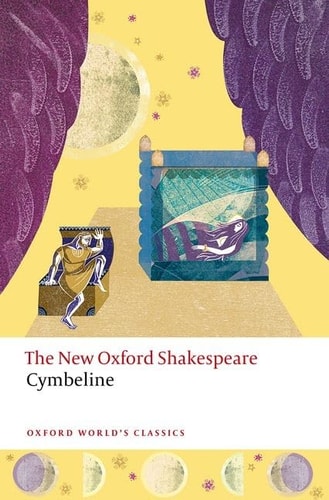Cymbeline
🚚 Typically arrives within 2-5 days
Couldn't load pickup availability
Purchasing this book could earn you 14 Bookpoints click to learn more
Author: William Shakespeare
Title: Cymbeline
Binding: Paperback
Number Of Pages: 224
Release Date: 2025-05-13
Details: Cymbeline Was Probably Written, By Shakespeare Alone, In 1610, Just Before The Tempest. (see Authorship Companion, 379-81.) It Is One Of Sixteen Previously Unpublished Plays Entered In The Stationers' Register To Edward Blount And Isaac Jaggard On 8 November 1623. The Only Authoritative Text Was Published Soon After In Shakespeare's Comedies, Histories, And Tragedies, Now Known As The First Folio. Cymbeline Is The Last Play In That Big Book, And Therefore Last In The 'tragedies' Section, Where It Is Consistently Labelled 'the Tragedy Of Cymbeline'. But Most Scholars Agree That The Generic Label Is Misleading. Although The Evil Queen And Her Son Die, Cymbeline Does Not. This Fact Distinguishes Cymbeline From All Shakespeare Plays Printed In His Lifetime Which Were Called Tragedies On Their Title Pages, And Also Distinguishes It From The Ten Other 'tragedies' In The Folio Table Of Contents (called A 'catalogue'): In All Those Pre-cymbeline Tragedies, The Character(s) Named In The Title Die During The Play. Perhaps Cymbeline Appears Among The Tragedies Simply Because The Printer Did Not Acquire A Manuscript Until Most Of The Book Was Already Printed. Even The Folio Publishers Send A Mixed Message About Cymbeline's Title: The Catalogue Lists It As 'cymbeline King Of Britaine'. That Title Is Supported By The Only Known Reference To The Play During Shakespeare's Lifetime: Simon Forman, In His Private Manuscript Notebooks, Recorded His Memories Of Various Plays He Attended, Including What He Twice Called 'cimbalin King Of England'. Although 'england' (which Never Occurs In The Play) Is Certainly A Mistake For 'britain' (which Occurs More Often Here Than In All Shakespeare's Other Plays Combined), Forman Confirms The Structure Of The Title And Its Emphasis On British Royal History. The Catalogue's Phrase Goes Back To The Roman Historian Suetonius, Who Called Him 'brittanorum Rex', And The Emphasis On 'britain' Rather Than 'england' Would Have Appealed To King James I, The Patron Of Shakespeare's Acting Company And The First Monarch To Call Himself 'king Of Great Britain'. The New Oxford Shakespeare Therefore Adopts The Title From The Folio 'catalogue'. Like Five Of The Comedies (the Tempest, The Two Gentlemen Of Verona, The Merry Wives Of Windsor, Measure For Measure, And The Winter's Tale), Cymbeline King Of Britain Was Apparently Printed From A Transcript By The Professional Scribe Ralph Crane. Crane Did Not Systematically Rewrite Stage Directions Or Systematically Interpolate Scene Divisions, As He Sometimes Did Elsewhere, And The Folio Act Divisions Reflect Normal Theatrical Practice In 1610. But Crane Was Probably Responsible For Consistently Calling The Play's Leading Character 'imogen': Shakespeare's Historical Sources (and Forman) Call Her 'innogen', And Shakespeare's 'nn' Could Easily Have Been Misread As 'm'. We Therefore Restore 'innogen', Which Suggests 'innocence'. Music For The Song 'hark, Hark, The Lark', Probably Written By The Composer Robert Johnson, Survives In An Early Seventeenth Century Manuscript. A Photograph And Analysis Of The Manuscript Is Included In Critical Reference Edition (2:3362-4), And Modern Notation For The Song Is Printed In Modern Critical Edition At 2.3.16-22-- Provided By Publisher.
EAN: 9780192882868
Package Dimensions: Weight: 0.00220462262 Pounds
Share

Join the Bookabaloo Rewards Program
1. Buy Books - 2. Earn Points - 3. Get More Books - 4. Repeat!

